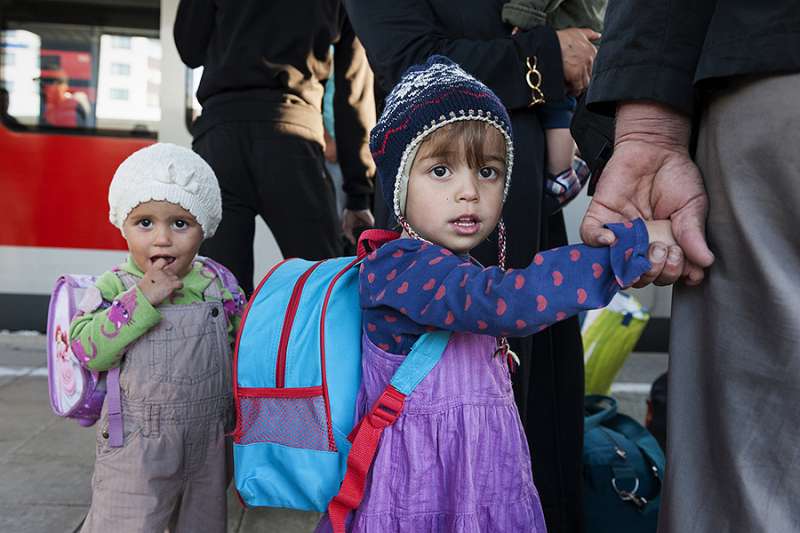For some 70 years, Catholic Charities in Oregon has helped refugees settle into their new life – assisting with everything from housing to English classes.
But with recent changes to vetting processes and travel bans, the state’s Catholic Charities will likely receive no more than 160 refugees for entirety of this fiscal year, ending in September. That’s nearly a 75 percent decrease from the estimated 600 refugees they helped settle in 2016.
The transition has been difficult, and more than half of the Oregon Catholic Charities’ refugee service staff had to be let go, said Matthew Westerbeck, program manager for Catholic Charities Refugee Services.
But the agency is adapting, and is now working to provide longer term support for new arrivals and refugees already here.
“We are focusing on employment, business development, mental health and counseling, and more intensive case management as well,” Westerbeck told CNA.
Just a year and a half ago, he said, no resettlement agency in Portland offered employment services. Agencies only provided eight months of aid from federal grants.
But now, Catholic Charities in Oregon is helping refugees find work, as part of its shift in focus to offer more in-depth and longer-term services.
“I think we are seeing significant changes in the families we offer employment services to and helping them with secure employment,” Westerbeck noted.
“We are able to have that relationship last a lot longer than eight months, [which] was the maximum before, for our agency’s ability to have contact and serve these people,” he said. “I think it’s tremendously important that we are there for them much longer than eight months.”
In some cases, refugees can be certified and matched with jobs similar to those they held in their home countries. Other times, they can receive job training in new fields.
One of the partners that works with Catholic Charities is Zomi Catholic Community, an organization for Burmese refugees that has created a program to help people obtain their Commercial Driver’s License.
In addition, Catholic Charities’ Family Support and Counseling Center is now able to receive Medicaid, providing refugees with better access to mental health services. Westerbeck said many clients suffer from PTSD due to traumatic experiences in their home country and emotional strain from the process of adjusting to a new country.
“A lot of refugees will say that the most traumatizing period of their life is the resettlement process, and if we can mitigate that in any way by helping them find a job that they can stay in, that helps them pay their bills so they are not in a housing crisis, then they can focus on other parts of their life that they are trying to rebuild.”
Westerbeck said Catholic Charities and its partners are developing services that will be available for up five years after refugees arrive in the region. Clients will likely not be enrolled in services during the entire five years, but they will have the availability to access them during that time.
During the 2016 fiscal year, the United States received nearly 85,000 refugees. This year, that number is expected to be about 20,000.
Westerbeck told CNA that many refugees arrive in the country frightened by the anti-immigrant sentiments they have seen expressed by Americans.
“The rhetoric that we see on news and have seen for the past year and a half definitely reaches all over the globe. We’ve had refugees arrive telling us at the airport that they were sacred to walk off the plane,” he said.
He emphasized that assisting those in need is an essential part of human relationships. Anyone, he said, could find themselves unexpectedly facing a similar fate – forced out of their home due to violence or famine, and in need of support.
“All of us would want to receive some amount of assistance,” he said. “It’s not a handout, it’s not any sort of a privilege thing that’s happening, this is a response to a humanitarian crisis.”

